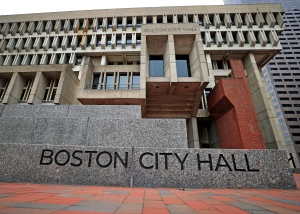Aaron wishes to see changes that will allow the employer community to work with the Department of Labor & Industries to advocate for worker’s safety and not just enforcement. Below he expands on how employers can do just that.
- What is an OSHA/WISHA safety inspection?
Washington is one of 25 states that enforces its own safety rules. Under the Washington Industrial Safety and Health Act (WISHA), the Department of Labor & Industries had modelled its safety rules under the federal Occupation Safety and Health Act (OSHA). For the most part, Washington’s safety regulations are the same as the OSHA standards, but there are a few differences where the WISHA standards provide greater protections.
The Department has Compliance Safety and Health Officers (CSHO) that conduct inspections and can issue civil penalties for serious citations. The maximum fine for a single “serious” violation is $7,000.00, and the maximum penalty for a “willful” serious violation is $70,000.00.
- How can companies prepare for a safety inspection?
Under WISHA, companies are required to develop and tailor their written Accident Prevention Program (APP) to address hazards that its employees may reasonably be exposed to. The APP requires employers to have a safety committee, develop safety rules, take steps to enforce its APP and to take appropriate corrective/disciplinary action for violations of its safety rules.
Employers need to document their safety meetings and keep minutes of what was discussed and who attended. For the construction industry, contractors must hold weekly safety meetings and further, conduct Walk Around Safety Inspections - once before a project starts and at least weekly thereafter.
- How do you prepare a safety checklist? What do you ensure is checked off?
Companies must identify the types of hazards that its employees may reasonably be exposed to and to develop safety rules and procedures to keep their employees safe. For example, if a company uses chemicals, it must train its employees on how to use a Safety Data Sheet prepared by the manufacturer of the product. If PPE is required, then the company must provide training to ensure that employees know when and how to use the PPE.
If there are machine hazards, such as saw blades or moving conveyor belts, then the company must provide guards. As there are well over 40,000 different safety and health regulations, employers should check the L&I webpage for more information (https://lni.wa.gov/safety-health/).
Employees and managers should prepare for a safety inspection. Employees should be prepared to explain what the safety rules are and how they are applied. The motto, “You respond the way you train” is appropriate. Employees who routinely explain what the rules are will be well prepared if a CSHO conducts an inspection. Also, employees should be made aware that they can request a member of management to be present during an interview with the Department. It is up to the employee to ask for someone to attend.
- What does the Department of Labor & Industries look for in a Safety Inspection?
Inspections can be triggered by an accident. If there is an injury that requires an employee to be admitted into a hospital, or results in a fatality, the employer must report it to the Department. Inspections can be triggered by news coverage, a complaint by an employee, or a referral from any source (i.e. fire department, police, public utilities, etc.). The Department will also have CSHO’s drive by construction sites to see if any violations are present.
Once an inspection starts, the Department will ask for the companies APP, safety meeting notes, safety committee minutes, the OSHA 300 log, and any disciplinary action taken for safety violations. The Department will also conduct a walk around inspection. This can be limited to a specific area or the entire facility. If the CSHO observes a safety hazard, it will issue a Citation & Notice with monetary penalties if serious violations are observed.
- How do companies survive a safety inspection?
The best way to prevent injuries and survive a WISHA inspection is to ensure that the company safety rules are both implemented and followed. If a safety hazard is observed, the company should document how it corrected the hazard. If employees commit a safety infraction, appropriate disciplinary action must be taken and documented in a manner consistent with its progressive disciplinary schedule. The Department will not give credit to a company’s enforcement program if it is not followed.
- When will a Citation be issued?
Under the law, the Department must issue the Citation and Notice within six months.
- What happens if employers are not efficiently prepared or breach regulations in this area? What are the options available?
The Department has the authority to issue monetary penalties that can cost millions of dollars. The Department can also shut down an operation if it believes there is an imminent hazard. A high citation history can be a factor that increases insurance premiums and reduces project bidding opportunities.
Not only can citations incur a higher monetary penalty, but they can also adversely affect a company’s reputation.
About Aaron K. Owada
- What do you think attributed to your achievement as one of five Amazing Attorneys by Washington CEO Magazine?
I believe that my commitment, my genuine concern for clients and my willingness to go the extra mile have been the keys to my success. Also, my background in prosecuting high profile WISHA cases and training Compliance Officers has provided a wealth of knowledge in the morass of safety standards that employers must comply with.
- What made you shift to private practice? What lessons did you learn along the way?
I wanted to share my knowledge and experience I gained as an Assistant Attorney General with the employer community to help them navigate the rough waters created by WISHA citations. I believe that employers must take all reasonable steps to protect their employees, but the employer should not be cited when a circumstance occurs that is beyond their control.
Through my experience, I have learned that the public sector should be held accountable for the decisions it makes.
- What do you want to achieve in 2021?
I am hopeful that in 2021 we can obtain changes that will allow the employer community to work with the Department to advocate for worker’s safety and not just enforcement. I would like to see clear rules so that employers do not have to question what a standard means in order to be in compliance. Employers should not lose business or pay excessive fines for violating an unclear rule that they directed their efforts to be in compliance with.
Aaron K. Owada
Owada Law, PC
975 Carpenter Rd NE, Ste. 204
Lacey, WA 98516
My Name is Aaron K. Owada, attorney at law. I founded my firm, Owada Law, PC, in 2018. In 2006, Washington CEO Magazine, I was recognized as one of five “Amazing Attorneys” in Washington. Today, small and large businesses across the state of Washington rely on our firm for their legal needs.
Owada Law provides top level representation in the areas of workers’ compensation defense, WISHA & OSHA, audit, corporate counsel services, & family law while utilizing our talented legal professionals who retain a true understanding of our clients’ critical business objectives and legal needs.
Since its founding, our firm’s core value has been to provide personalized, knowledgeable and aggressive representation. Owada Law is committed to serving the various needs of our clients.





















